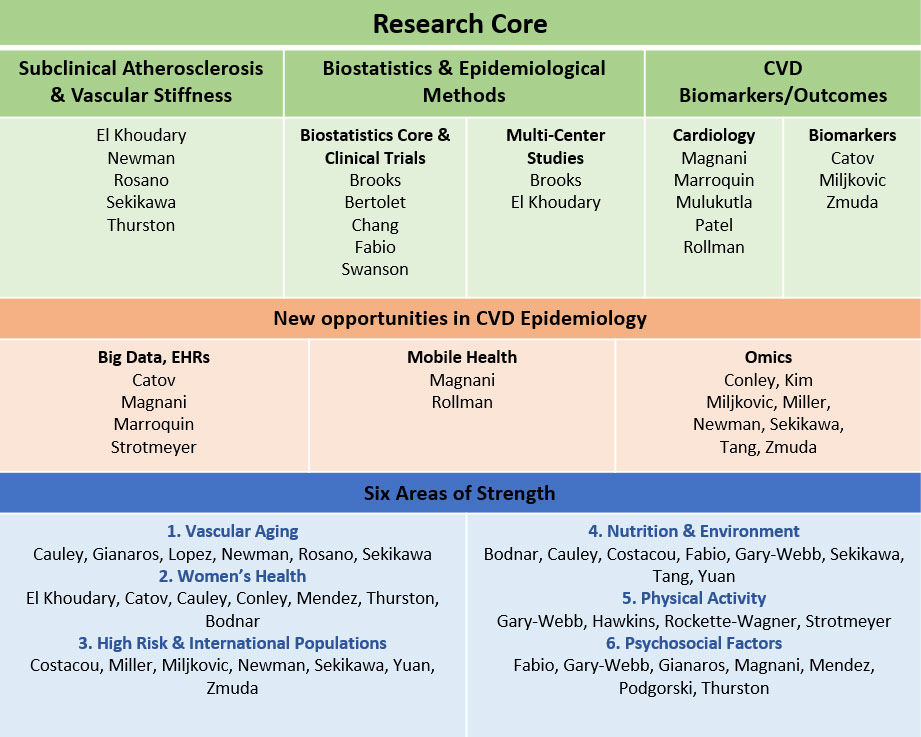Key Components and Requirements of CVD Epidemiology T32 Program
Mentorship: Trainees have a primary mentor and work closely with other faculty members as well as a peer mentor who is a more experienced trainee. Pitt post-doctoral trainees are required to form a mentoring team (³3 faculty) as part of their Career Development Plan. Two meetings with T32 executive committee and updated training plan required annually to review trainee progress.
Complete required course work.
- For pre-doctoral trainees complete a PhD or DrPH degree in Epidemiology. As part of the dissertation process, trainees are usually expected to collect some original data.
- If a post-doctoral fellow does not have a health-related degree in medicine (MD) or another area (PhD), with appropriate epidemiology content, further courses or an MS or MPH in epidemiology will be advised.
Develop expertise in specific CVD content area: Achieve familiarity with one or more subclinical CVD measures, CVD biomarkers, or CVD outcomes to the extent that the trainee is able to use these data in a research study.
Research field work (e.g.recruitment, data collection, entry and management, study operations and data analysis) providing trainees with experience in the full range of research tasks.
Develop and submit manuscripts related to research of interest.
- For pre-doctoral trainees 3 manuscripts will be required for the doctoral dissertation. An additional 2 first or co-author publishable manuscripts will be strongly encouraged during the training.
- For post-doctoral trainees 1-2 first author and 1-2 co-author manuscripts per year will be strongly encouraged.
Write an application for external funding related to the chosen area of research focus.
- For pre-doctoral trainees, the department’s grant writing course is required. Some pre-doctoral trainees may choose to apply for external funding (F31).
- Post-doctoral trainees will be required to design a study that they will then include in a grant application for external funding such as a K award, or AHA grant.
Develop professional skills including public speaking, networking, collaborative research, professional etiquette, and the responsible conduct of research.
Local/National Conferences: Attend and present research results at local and national professional meetings including the NHLBI trainee session held during the AHA EPI/LIFESTYLE conference.
Remote Training: Complete remote training experience working with or receiving training from individuals at another institution/organization (Not required but encouraged).
Teaching/Mentoring Skills: Develop teaching and mentoring skills via department courses, T32 required courses or Pitt workshops and serving as a peer mentor.



